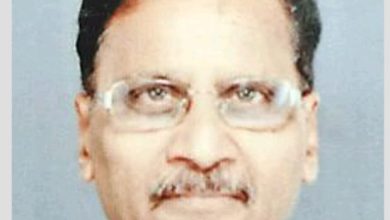Modi is set to transform India into an energy independent nation

The energy transition is continuing at an unprecedented pace and scale, requiring new low carbon technologies. To date, India has had limited success in capturing the manufacturing benefits of certain clean energy technologies, such as solar PV and batteries.
TERI sees green hydrogen as the next ‘clean energy prize’, which will require coordinated action from industry and government for India to capture the benefits. Early demand markets for hydrogen include fuel cells for trucking, balancing supply and demand in the power sector and replacing fossil fuels in industry. The potential scale of hydrogen use in India is huge; increasing between 3 and 10 times by 2050. Hydrogen can provide a supplementary role to renewables and batteries, in a transition to a carbon neutral economy. Hydrogen can be divided into ‘grey’ (produced from fossil fuels), ‘blue’ (produced from fossil fuels with carbon capture and storage) or ‘green’ (produced from renewable electricity).
For India to guarantee its role as a technology leader in the next phase of the energy transition, it will need to greatly increase activity across the public and private sectors to develop a hydrogen economy. India should focus public money for R&D and technology development to try and be on the global frontier in each part of the value chain of green hyrogen, with the objective of lowering costs and increasing deployment. This requires a coordinated push from the supplyside, with increased investment and R&D commitments by government and industry, as well as demand-side support in the form of guaranteed markets, enabled by government procurement, subsidy schemes or regulations / standards on fossil fuel alternatives. No doubt, ‘India is committed to the rapid expansion of the hydrogen economy, ensuring the cost-effective deployment of low carbon hydrogen technologies across the transport, industry and power sectors by 2030’.
Clear recognition of hydrogen’s cross-economy role, with outlines for scaling-up use in transport, industry and power; Commitment to update existing regulations to permit the safe use of hydrogen, at high pressure, across a number of end-use sectors; ‘Make in India’ policy support to champion electrolyser manufacture and commercialisation, realising their suitability to the Indian market and significant potential for emissions reduction; Significant increases in existing hydrogen R, D & D spending, Policies to create a guaranteed market for hydrogen technologies, where they are not yet at cost parity with fossil-fuel equivalents, for example in the steel sector; Meaningful engagement in international collaborations on developing hydrogen technologies, Prime Minister Narendra Modi is now all set to transform India into an energy independent nation by 2047 where green hydrogen will play an active role as an alternate fuel to petroleum/ fossilbased products.
In 2020, India’s hydrogen demand stood at 6 million tonnes (MT) per year. It is estimated that by 2030, the hydrogen costs will be down by 50 per cent. The demand for hydrogen is expected to see a five-fold jump to 28 MT by 2050 where 80 per cent of the demand is expected to be green in nature. Some of the prominent industrial mammoths such as Reliance Industries Limited (RIL), Gas Authority of India Limited (GAIL), National Thermal Power Corporation (NTPC), Indian Oil Corporation (IOC) and Larsen and Toubro (L&T) plan to foray into the green hydrogen space. RIL plans to become a net-carbon zero firm by 2035 and invest nearly INR 750 billion over the next three years in RE. The government- led public sector undertaking (PSU), Indian Oil, is at the forefront of the green hydrogen revolution.
It is planning to setup India’s first green hydrogen unit for the Mathura refinery, which will be used to process crude oil. National Thermal Power Corporation (NTPC), has recently set up a first-of-its-kind hydrogen refuelling station to be powered entirely by renewables in Leh through a standalone 1.25 MW solar system. Two hydrogen refuelling stations have already been established (one each at Indian Oil R&D Centre, Faridabad and National Institute of Solar Energy, Gurugram). India has declared its ambition to become an exporter of hydrogen to Japan, South Korea, and Europe. Various hydrogen powered vehicles have been developed and demonstrated under projects supported by Government of India.
These include 6 Cell buses by Tata Motors Ltd., 50 hydrogen enriched CNG (HCNG) buses in Delhi by Indian Oil Corporation Ltd. in collaboration with Govt. of NCT of Delhi, 2 hydrogen fuelled Internal Combustion Engine buses (by IIT Delhi in collaboration with Mahindra & Mahindra). India’s distinct advantage in terms of low-cost renewable electricity, complemented by rapidly falling electrolyser prices, can enable green hydrogen to be not just economical compared to fossilfuel based hydrogen but also compared to the green hydrogen being produced around the globe. Going further, Indian Railways has initiated “Hydrogen for Heritage” project, plans to operate 35 Hydrogen trains for a greener future.
The Hydrogen for Heritage project aims to revolutionise the railway industry by incorporating hydrogen fuel cells as an alternative to diesel engines. The project also promotes clean energy sources with the aim of minimising harmful pollutants. While the initial costs of running these hydrogen fuel trains is expected to be expensive, but with the increase in the number of trains running on the alternative fuel, the projected expenditure will decrease. The introduction of hydrogen as a fuel source will not only offer significant advantages in the realm of green transportation technology, but will also align India’s zero carbon emission goals.
By utilizing hydrogen fuel cells instead of diesel engines, these trains emit zero carbon dioxide, nitrogen oxides, and particulate matter, making them a far more environmentally friendly option. The introduction of hydrogen-powered trains will pave the way for a cleaner greener future. (Author is an Eminent Social Scientist, Columnist, and Professor of DoHE, GoMP based at Indore, Madhya Pradesh.Email: [email protected]) (The views expressed above are the author’s own. They do not necessarily reflect the views of Central Chronicle.).






